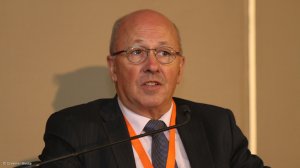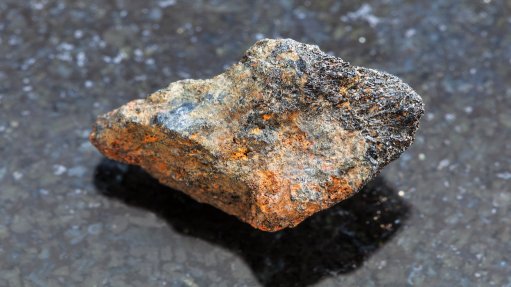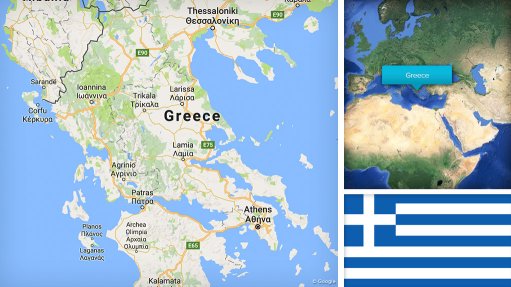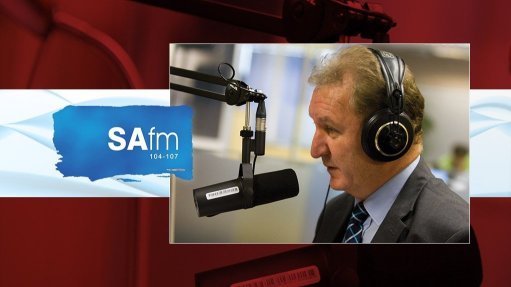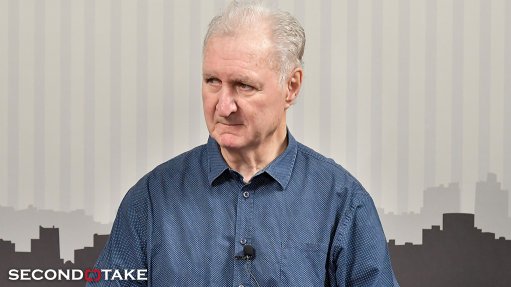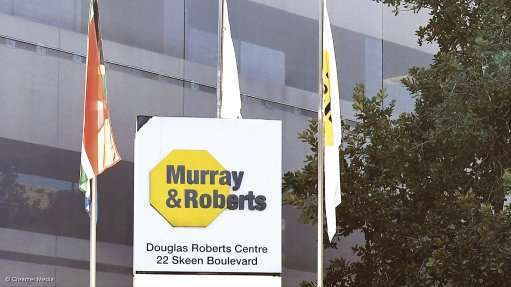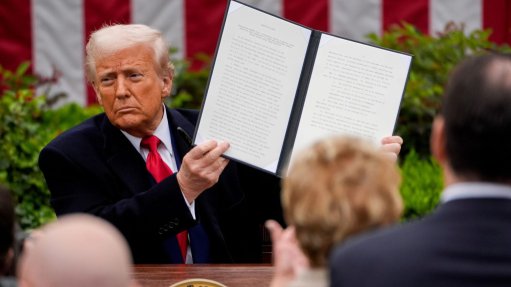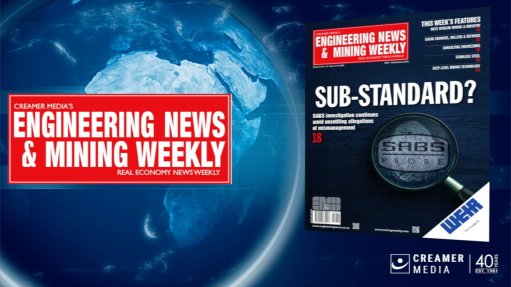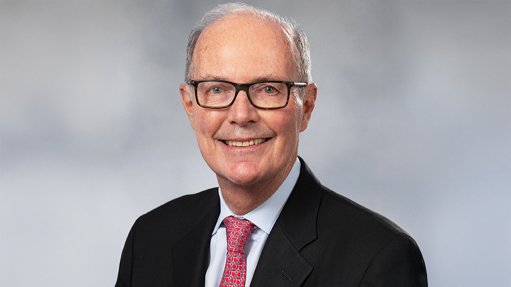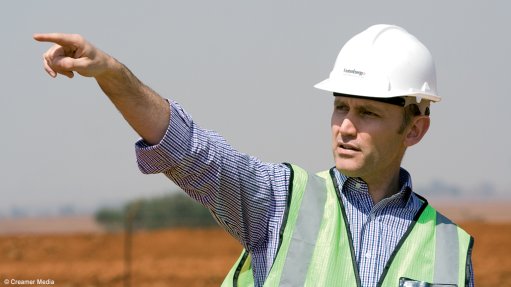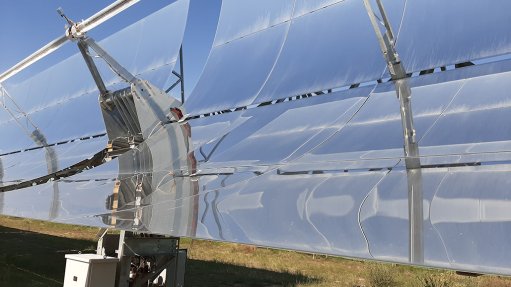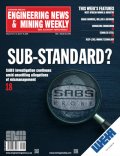Areva and Rosatom on nuclear costs, secrecy and the South African tender

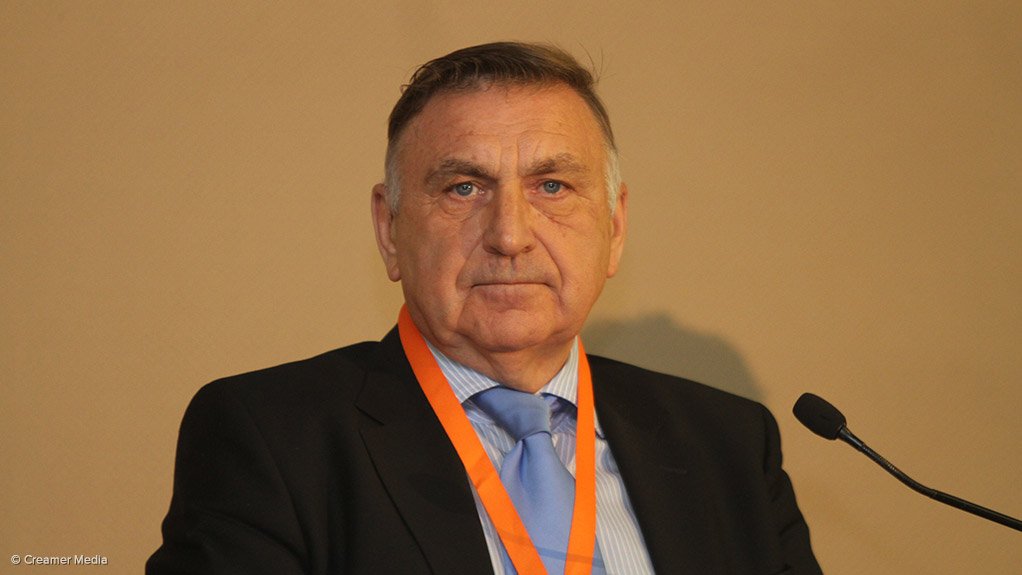
Areva South Africa MD Dr Yves Guenon and Rosatom regional VP Viktor Polikarpov on the South African nuclear procurement process. Camera Work: Nicholas Boyd. Editing: Lionel da Silva.
Rosatom sub-Saharan Africa VP Viktor Polikarpov
Photo by Duane Daws
Nuclear vendor Areva, which is planning to participate in a French industry bid for South Africa’s proposed nuclear build programme, indicated on Tuesday that, in the absence of an actual tender, it was not possible to offer any certainty as to the likely cost of the programme.
It has been widely speculated that it could cost South Africa up to R1-trillion to build the 9 600 MW outlined in the 2010 version of the Integrated Resource Plan (IRP), which government had yet to update, despite material changes to the demand outlook and a slump in electricity sales to 2007 levels.
Government had indicated previously that it was working on an updated version of the IRP, which should be released before April. Cabinet had not adopted a 2013 update, which placed a price cap on nuclear and also indicated that the programme could be delayed or downscaled in light of the lower demand outlook.
But speaking at the Africa Energy Indaba, Areva South Africa MD Dr Yves Guenon said that, until there was certainty on what South Africa was actually intending to buy, as well as how government planned to allocate the risks between itself, the vendors and the utility “nobody can know the price”.
Comparing it to the purchase of a vehicle, Guenon said it was impossible to say what the price of a car would be unless one knew the brand and model. “We will know the price of a nuclear plant only when we have the document detailing what is being requested . . . until this time we cannot give a price,” Guenon asserted.
Rosatom regional VP Viktor Polikarpov said the request for proposals – which was expected to be released in 2016 after Cabinet approved, in December, the publication of a nuclear determination signed in 2013 –would outline government’s intentions with regard to the scale of the project and its expectations regarding localisation and technology transfer – aspects that would all influence the price tag.
In his recent State of the Nation Address, President Jacob Zuma again reaffirmed the country’s commitment to a new build programme, but added: “We will only procure nuclear on a scale and [at a] pace that our country can afford”.
Both Guenon and Polikarpov urged government to move ahead decisively, warning that further delays could result in South Africa experiencing a 20 GW baseload gap from 2030 onwards as the country's fleet of coal-fired power stations were retired.
Guenon warned that the development process would take at least ten years from the selection of the preferred vendor, because the programme would have to go through a full process of licensing, which could take years.
However, there was still significant opposition to the programme, which was likely to face legal challenge, owing partly to the fact that it was proceeding in the absence of an updated IRP.
There was also concern that the nuclear programme could be prone to corruption and secrecy, an allegation dismissed by Polikarpov who blamed many of current misgivings on the way an intergovernmental agreement between Russia and South Africa had been communicated in 2014.
He stressed that there had never been any “deal” between South Africa and Rosatom, but that the company remained confident that they would prevail in a competitive tender process.
“The fact that Rosatom today is building 43 reactors in the world and has the most reference technology . . . gives us the feeling that we are humbly the best.”
Guenon countered by arguing that, if Areva felt the contract had already been awarded to Rosatom, it would not be entering the contest.
“We [Areva and Rosatom] are competitors everywhere in the world. If you think you have no chance, we are not coming. It will be a competition,” he said, adding that there were also likely to be a number of other bidders.
Comments
Announcements
What's On
Subscribe to improve your user experience...
Option 1 (equivalent of R125 a month):
Receive a weekly copy of Creamer Media's Engineering News & Mining Weekly magazine
(print copy for those in South Africa and e-magazine for those outside of South Africa)
Receive daily email newsletters
Access to full search results
Access archive of magazine back copies
Access to Projects in Progress
Access to ONE Research Report of your choice in PDF format
Option 2 (equivalent of R375 a month):
All benefits from Option 1
PLUS
Access to Creamer Media's Research Channel Africa for ALL Research Reports, in PDF format, on various industrial and mining sectors
including Electricity; Water; Energy Transition; Hydrogen; Roads, Rail and Ports; Coal; Gold; Platinum; Battery Metals; etc.
Already a subscriber?
Forgotten your password?
Receive weekly copy of Creamer Media's Engineering News & Mining Weekly magazine (print copy for those in South Africa and e-magazine for those outside of South Africa)
➕
Recieve daily email newsletters
➕
Access to full search results
➕
Access archive of magazine back copies
➕
Access to Projects in Progress
➕
Access to ONE Research Report of your choice in PDF format
RESEARCH CHANNEL AFRICA
R4500 (equivalent of R375 a month)
SUBSCRIBEAll benefits from Option 1
➕
Access to Creamer Media's Research Channel Africa for ALL Research Reports on various industrial and mining sectors, in PDF format, including on:
Electricity
➕
Water
➕
Energy Transition
➕
Hydrogen
➕
Roads, Rail and Ports
➕
Coal
➕
Gold
➕
Platinum
➕
Battery Metals
➕
etc.
Receive all benefits from Option 1 or Option 2 delivered to numerous people at your company
➕
Multiple User names and Passwords for simultaneous log-ins
➕
Intranet integration access to all in your organisation


